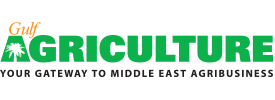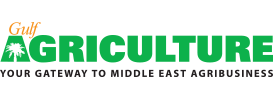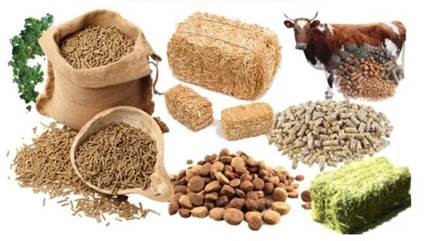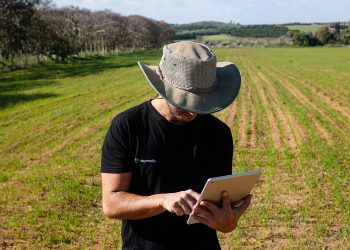According to the latest industry analysis by Fact.MR, a leading provider of market research and competitive intelligence, the global Animal Feed Probiotics Market is estimated to be valued at US$ 3.51 billion in 2024 and is anticipated to reach US$ 6.65 billion by the end of 2034.
This growth trajectory is driven by several factors including the increasing focus on animal health, the transition towards sustainable farming methods, and the rising demand for premium animal products. Probiotics, which consist of beneficial microorganisms like bacteria and yeast, are added to animal feed to enhance digestive health, improve nutrient absorption, and bolster overall immunity in livestock and poultry.
A notable trend in this market is the development of tailored probiotic solutions designed for specific animal species. Companies are heavily investing in research to identify and formulate strains that cater to the unique digestive systems and health needs of various livestock such as poultry, swine, and cattle. This strategic approach is resulting in substantial revenue growth.
Key market players are also prioritizing technological advancements in probiotic formulations to ensure safe and efficient livestock production. This includes innovations in microencapsulation and protective coatings to enhance the stability and viability of probiotic cultures, thus ensuring their efficacy throughout the feed manufacturing and digestion processes.
Furthermore, the increasing global demand for meat and dairy products is driving growth in the animal feed probiotics market. Probiotics play a vital role in improving feed efficiency and overall animal health, thereby meeting the rising demand for premium-quality animal products.
Key Takeaways from Market Study
- Global demand for animal feed probiotics is projected to increase at a CAGR of 6.6% from 2024 to 2034.
- The United States market is forecasted to reach US$ 1.42 billion by 2034-end.
- Sustainable agriculture practices, coupled with consumer preferences for organic and responsibly sourced products are driving the demand for animal feed probiotics in Germany.
- Sales of animal feed probiotics in Japan are estimated at US$ 124.8 million in 2024.
“Animal feed probiotics, being natural supplements, are in high demand as a viable solution to reduce the reliance on antibiotics, enhance animal well-being, and promote eco-friendly farming practices,” says a Fact.MR analyst.
Winning Strategy
Leading manufacturers of animal feed probiotics market include Chr. Hansen Holding A/S, Lallemand Inc., Koninklijke DSM N.V., and Evonik Industries AG. Leading companies are at the forefront of innovation, investing in research and development initiatives to introduce novel probiotic solutions.
Several companies are actively pursuing global expansion strategies, identifying new markets, and tailoring their products to regional preferences. This approach is aiding them in diverse market presence and access to a broad customer base.
The growth of the animal feed probiotics market in the United States, Germany, and Japan is propelled by several key factors, including an increasing emphasis on sustainability, strict regulations governing antibiotic usage, and a growing recognition of the advantages of probiotics in augmenting animal health and product excellence.
In the United States, a burgeoning preference among consumers for sustainable and organic agricultural methods is driving demand for animal products sourced from natural and environmentally friendly practices. Probiotics integrated into animal feed align with these preferences by promoting sustainable livestock production and reducing reliance on antibiotics.
Germany’s rigorous regulations on antibiotic usage in animal husbandry are driving the uptake of probiotics as a preventative and therapeutic solution, thereby enhancing the overall health and productivity of livestock.
Additionally, Germany, renowned for its technological innovation, is witnessing advancements in probiotic formulations. Companies are leveraging state-of-the-art technologies to develop probiotics with enhanced stability, viability, and targeted benefits, catering to the exacting demands of the German livestock sector.
In Japan, where space for livestock farming is limited, there is a strong emphasis on maximizing productivity and ensuring the quality of animal products. Probiotics contribute to achieving these goals by improving feed efficiency, supporting growth, and enhancing the overall quality of meat and dairy products, thus appealing to Japanese farmers.
More Valuable Insights on Offer
Fact.MR, in its new offering, presents an unbiased analysis of the global animal feed probiotics market, presenting historical demand data for 2018 to 2023 and forecast statistics for 2024 to 2034.
The study divulges essential insights on the market based on source (bifidobacterium, lactobacillus, bacillus, enterococcus, streptococcus, pediococcus, saccharomyces, propionibacterium, yeast, others), animal type (companion animals, poultry, cattle, swine, aquatic, others), form (liquid, dry), and sales channel (modern trade, specialty stores, online retailers, convenience stores, direct sales), across six major regions of the world (North America, Latin America, Europe, East Asia, South Asia & Oceania, and MEA).
These insights are based on a report on Animal Feed Probiotics Market by Fact.MR.


























